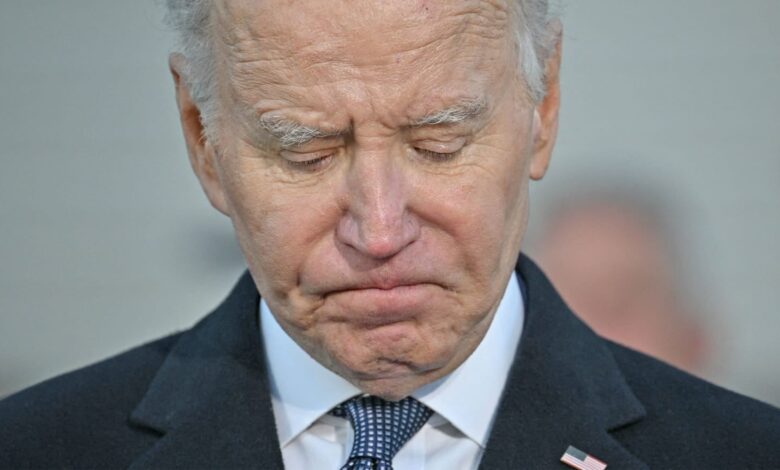Our hearts are heavy as we share the sad news about Joe Biden!

In a future America reflecting on the arc of its history, few names echo as quietly and steadily as Joseph Robinette Biden Jr. What if, years from now, the nation paused to remember him not just as a president, but as a man whose life embodied endurance — a story of loss, faith, humor, and hope that outlasted the storms of politics.
Born in Scranton, Pennsylvania, and raised in Delaware, Biden came of age in a working-class household that taught him dignity in labor and resilience in failure. He entered public life young, a 29-year-old senator whose affable plain-speak masked steel-willed determination. His early career was tested almost immediately by tragedy — the car accident that claimed his wife, Neilia, and baby daughter, Naomi, and gravely injured his sons. From that moment, grief and duty became the twin currents running through his life.
He spent decades commuting from Wilmington to Washington by train, balancing fatherhood and political service. The image of “Amtrak Joe” wasn’t campaign branding — it was survival, a daily act of devotion to his family.
As vice president under Barack Obama, Biden became the country’s comfort voice during crises: the hand on the shoulder, the unscripted moment of compassion that reminded Americans their government still had a heartbeat. He helped steer recovery efforts after the 2008 financial collapse and shaped major foreign policy decisions, earning both praise and criticism, but always engagement.
When he became the 46th President of the United States in 2021, he inherited a nation weary from division, disease, and doubt. The early months of his administration were consumed by pandemic recovery — vaccines, stimulus plans, and the slow, uneven reopening of American life. He leaned on empathy more than eloquence, often speaking like a man talking across a kitchen table rather than a podium.
His presidency emphasized infrastructure, alliances, and the quiet rebuilding of institutions that had frayed. Critics accused him of being too cautious; supporters saw steadiness. History, as it often does, would likely see both.
But what defined Biden wasn’t policy — it was perspective. Having buried two children and endured the collapse of personal and political dreams alike, he understood loss on a scale most leaders never touch. That pain gave his public life an uncommon tenderness. When he spoke about grief, people listened not because he was powerful, but because he was familiar — the neighbor who understood.
His words — “Don’t tell me what you value. Show me your budget, and I’ll tell you what you value” — summed up his philosophy: empathy backed by action.
In this imagined remembrance, tributes pour in from across the world. Former presidents call him “the steady hand history needed.” Foreign leaders recall a man who preferred conversation over confrontation. And ordinary citizens — teachers, soldiers, nurses — speak of a leader who made them feel seen.
His family, always the anchor of his story, would gather in Wilmington to celebrate a man who never stopped being husband, father, grandfather, and friend before anything else. Dr. Jill Biden, his partner through decades of triumph and trial, would remind the world that compassion and strength are not opposites — they’re survival tools.
His legacy, in this “what if” moment, is one of decency — a word that feels small until it’s missing. He proved that politics could still be personal, that public service didn’t require cruelty, and that a lifetime of setbacks could still end in purpose.
If such a day ever comes, America would not just mourn a president. It would remember a man who believed, against cynicism and noise, that kindness was power — and that the work of healing never really ends.